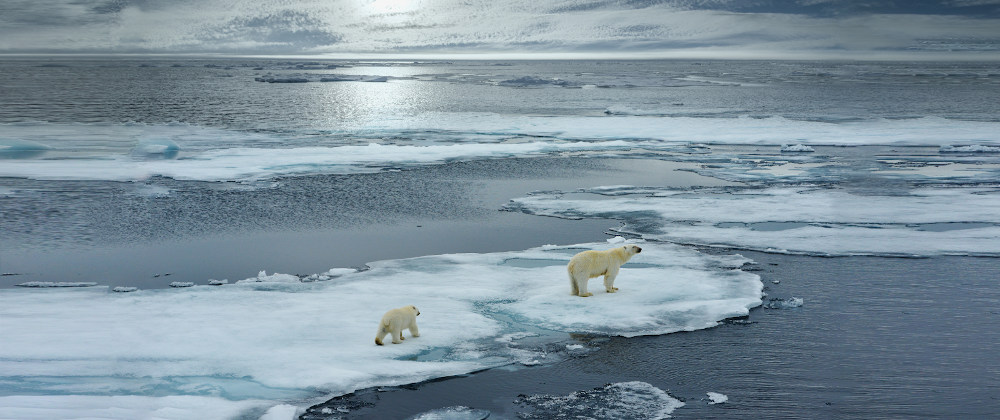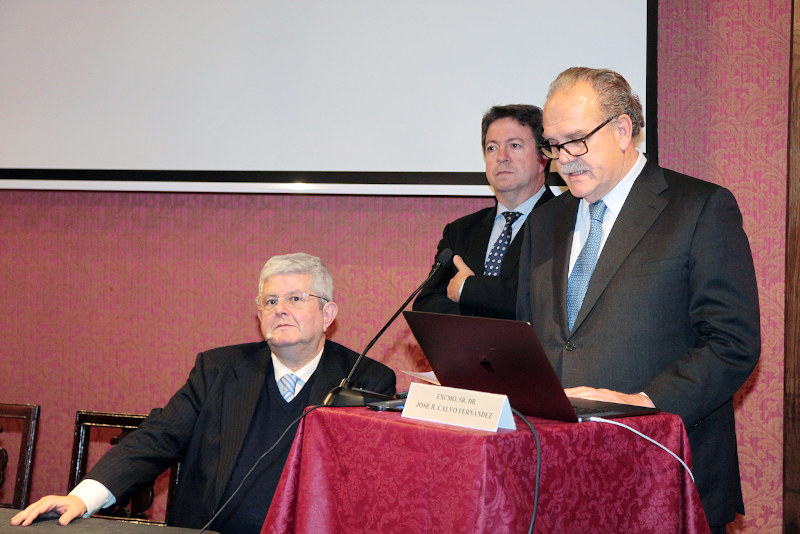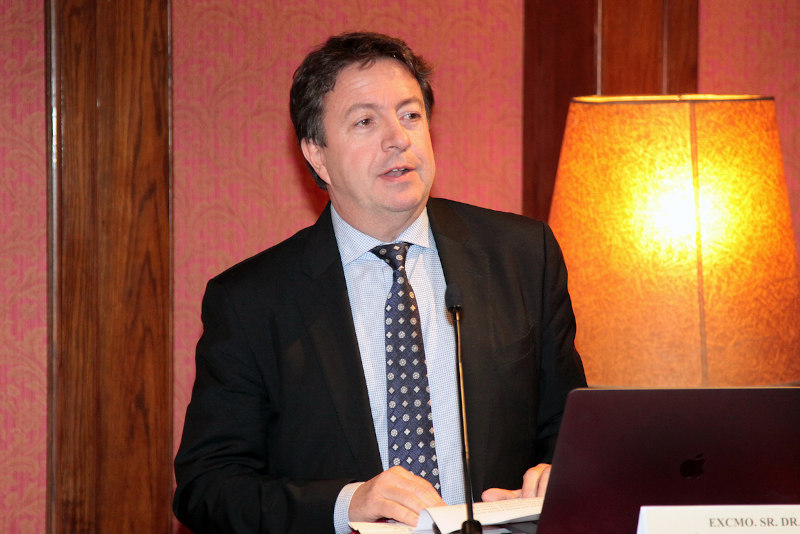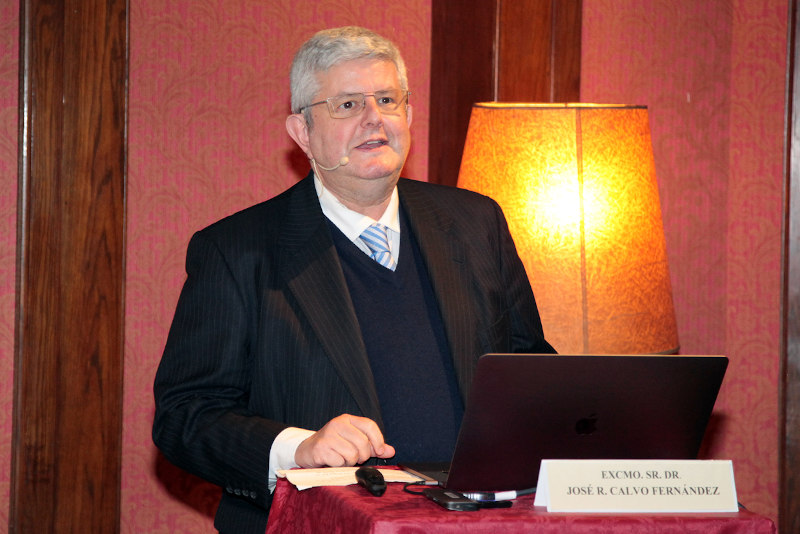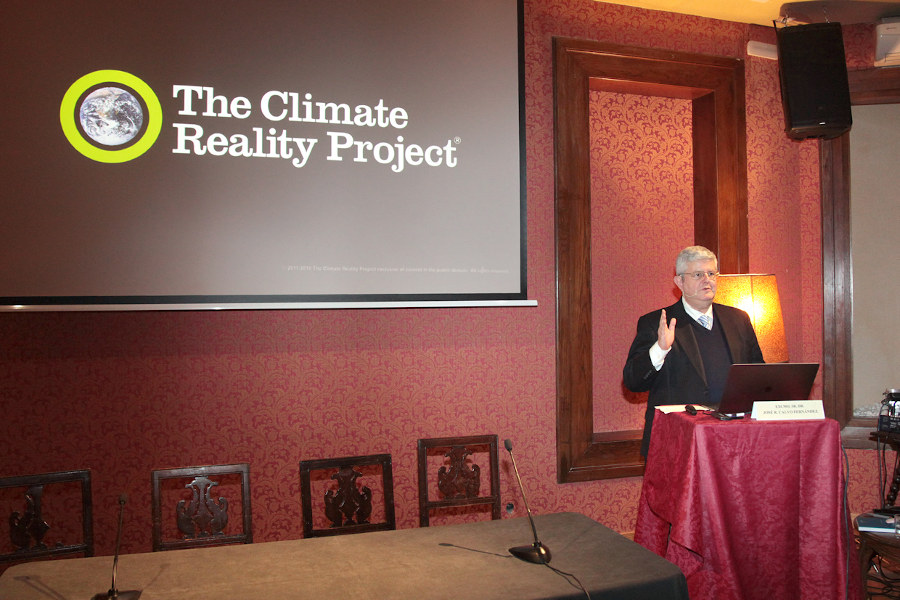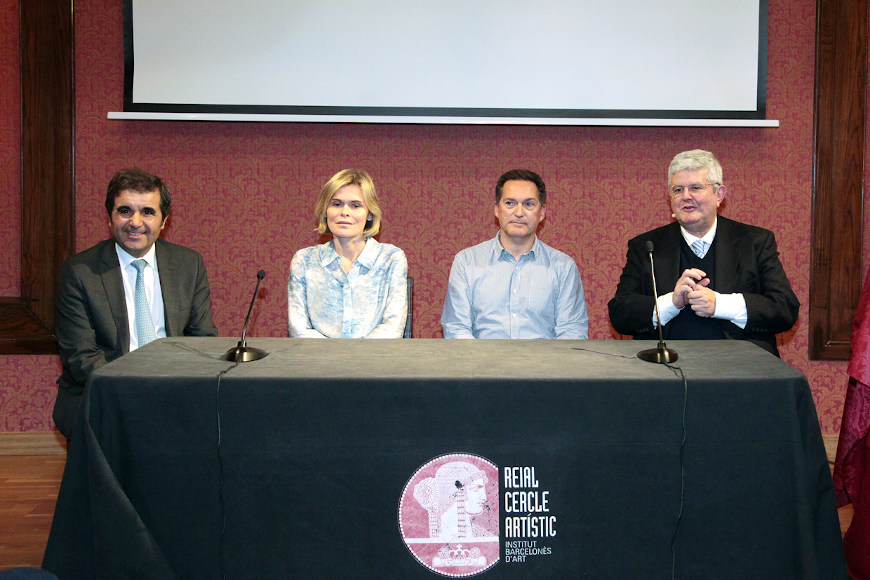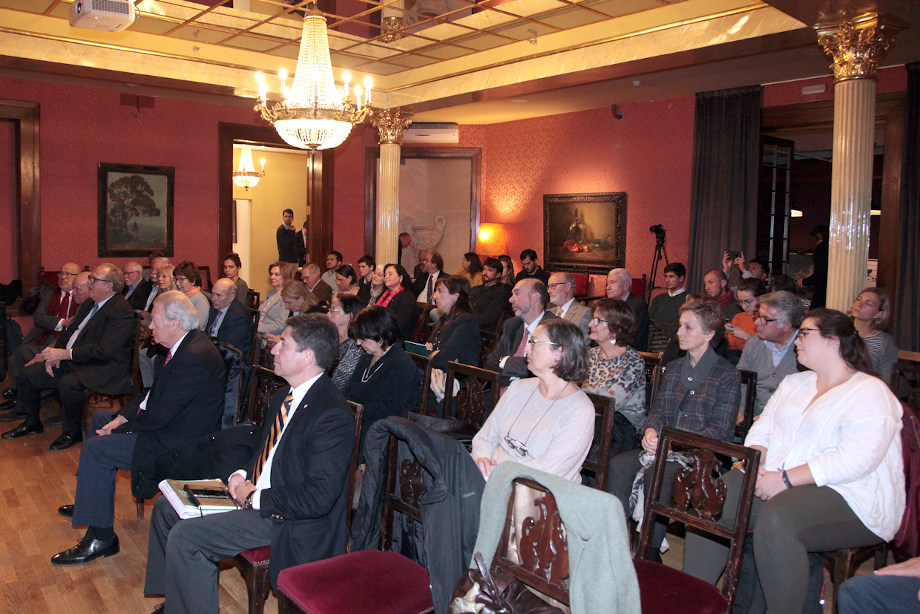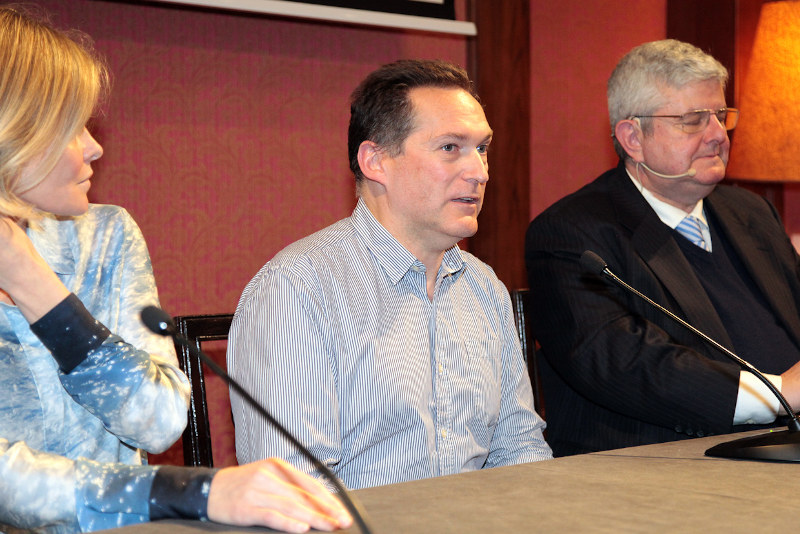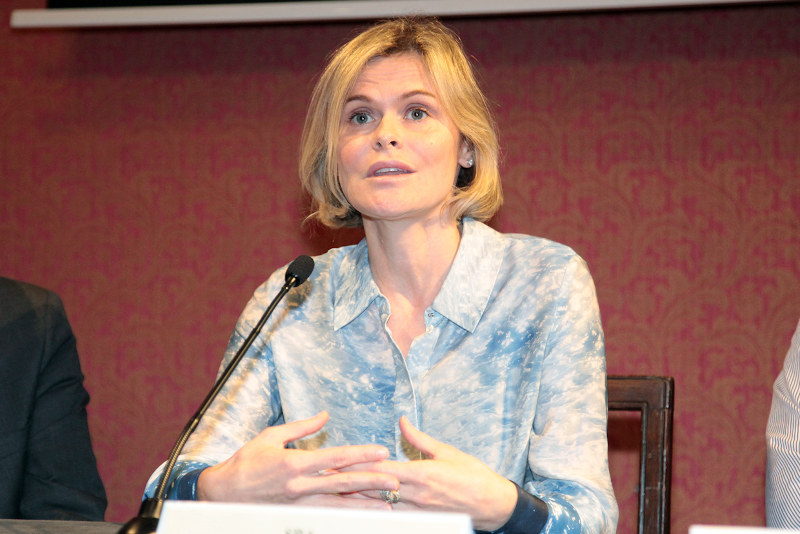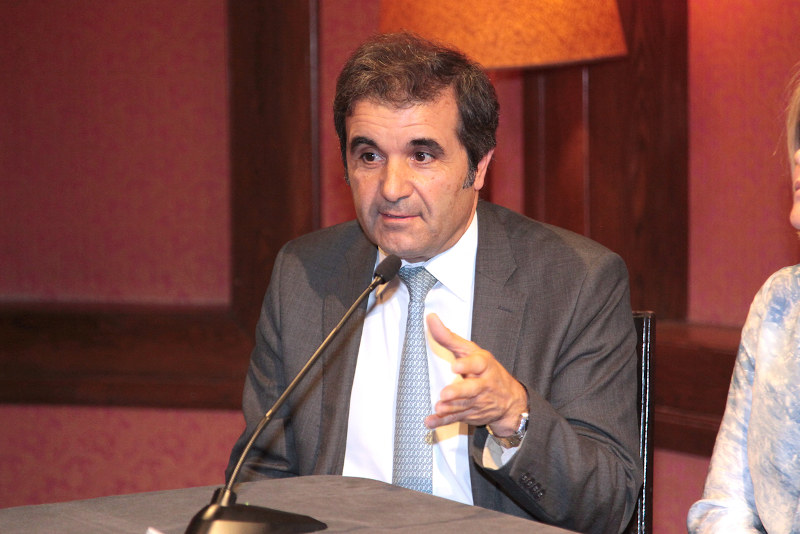The Royal Academy hosts the conference that represents Spain in the Climate Reality Project promoted by Al Gore
José Ramón Calvo, full academician and president of the Institute for International Cooperation of the Royal European Academy of Doctors-Barcelona 1914 (RAED) and strategic advisor of the Barcelona Supercomputing Center, gave the conference on November 21 at the Royal Artistic Circle of Barcelona the conference “24 Horas de Realidad. La verdad en marcha” (24 Hours of Reality. The truth in progress). It was the event that represented Spain in the international conferences organized by the Climate Reality Project promoted and chaired by the former vicepresident of the United States and Nobel Peace prize Al Gore. This is a wide series of conferences with the same content that were held in more than 80 countries simultaneously. For each assistant registered to this series of conferences, the international organization Plant a Tree has committed to plant a tree in various countries of the world.
The Barcelona event was organized by the Foundation of the Royal European Academy of Doctors, with the collaboration of the Royal Artistic Circle, the European Development Foundation and the Quo Artis Foundation and was completed with a discussion table entitled “Cómo afecta el cambio climático a la salud, la empresa o el mundo” (How does it affect climate change to health, business or the world). The event is also attended by the full academician of and member of the Government Board of the RAED Jordi Martí; the director of the Department of Earth Sciences of the Barcelona Supercomputing Center, Francisco Javier Doblas-Reyes, and the general director of the Quo Artis Foundation, Tatiana Korouschkina, regular collaborator of the Royal Academy.
This initiative is part of a set of activities grouped under the heading Campus Sustainability, which will be developed in the next 24 months and whose most prominent point, in addition to these dissemination and awareness actions, will be the scientific expedition that the RAED will carry out at Galapagos Islands in September 2020 with National Geographic. This whole process will culminate with the organization of a Climate Campus in Barcelona in June 2021 in which 300 young people from all over the world will receive training in climate leadership techniques by personalities of the highest international level. The objective is that a group of future leaders not only has a high level of social and environmental awareness, but also has the knowledge, tools and strategies to be able to lead real changes in their areas of influence.
In his lecture, Calvo offered both generic and other specific data on the climate crisis referred to the Spanish reality. “These are bad times to be born: climate change is a serious threat to the health of children on the planet and compromises the well-being of future generations, as warned by a new report from the magazine ‘The Lancet’, which analyzes the impact of climate about human health -the academic began his talk-. If humanity continues with the current dynamics and the objectives of the Paris Agreement to limit global warming to less than 2ºC aren’t met, babies born today will suffer in each of the stages of his life irreversible and lasting health damage. This is the conclusion of this review, which has been prepared by 120 scientists from 35 institutions around the world, including the World Health Organization and the World Bank, and urges governments to take vigorous actions to change the course of health impacts of climate change”.
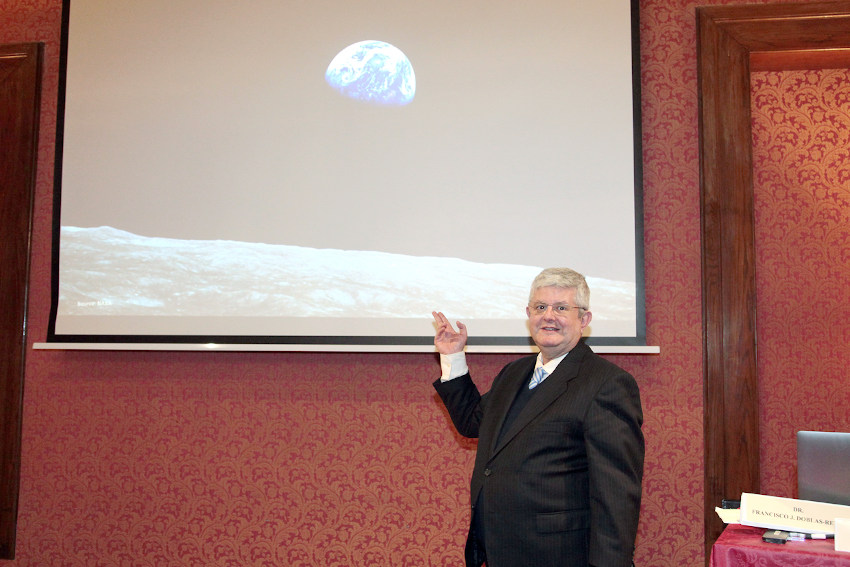
The report cited by Calvo analyzes 41 key indicators for two possible scenarios for the future in a world that warms up and stands on average 1ºC above pre-industrial levels. If global warming is limited to at least 1.5°C and the objectives of the Paris Agreement are met, a child born today would grow up in a world with a zero level of CO2 emissions before the age of 31, which would guarantee a healthier future for future generations, with cleaner air, access to safe drinking water and more nutritious food. In the second scenario analyzed by the report, that of inaction, in which humans ignore the warnings of scientists and continue to act as if nothing happens, when that same child turned 71 years old there would be 4°C more and for that scenario there are no predictions, because current models collapse. “The health impacts would be brutal,” says Marina Romanello, a data scientist in the report.
On the effects of warming in Spain, the academician indicated, data in hand, that during the summer of 2017 almost half of Spain was placed on emergency alert due to high temperatures and from the summer of 2018 the heat wave carried the Spain’s temperature over 40ºC and some areas reached up to 46ºC causing eight deaths. In southern Spain, the average annual temperature has already reached the long-term objective of the Paris Agreement: 1.5ºC above pre-industrial levels. Climate change can turn southern Spain into a desert at the end of the century. The longest river in the Iberian Peninsula, the Tagus, could dry up due to climate change and dams, and put millions of people who depend on the river at risk. In 2100 the sea level of the Spanish coast is expected to rise 47 cm, although it could do so at 88 cm in the worst case. That would mean that almost half of Catalonia’s ports would be threatened.
On the impacts that all this would have on health, Calvo highlighted the increase in air pollution to which 97% of the population is exposed or vector-borne diseases such as malaria, eradicated from the country in 1964. “Climate change may be expanding the geographic distribution and transmissibility of the vector, the Anopheles mosquito, and it’s influencing the duration of the activity period and the population densities of the sandfly, a vector for leishmaniasis, caused by parasitic protozoa. The first six cases of unimported dengue were diagnosed in the Mediterranean region in 2108 and there was a significant increase in its transmission vector, the tiger mosquito. There is also a risk, as has happened in the Azores and Madeira, for the virus to spread of Zika and that cases of Chicungunya appear”, he said.
- Dr. Josep Fèlix Bentz
- Dr. José Ramón Calvo
- Francisco Javier Doblas-Reyes
- Tatiana Korouschkina
- Dr. Jordi Martí

